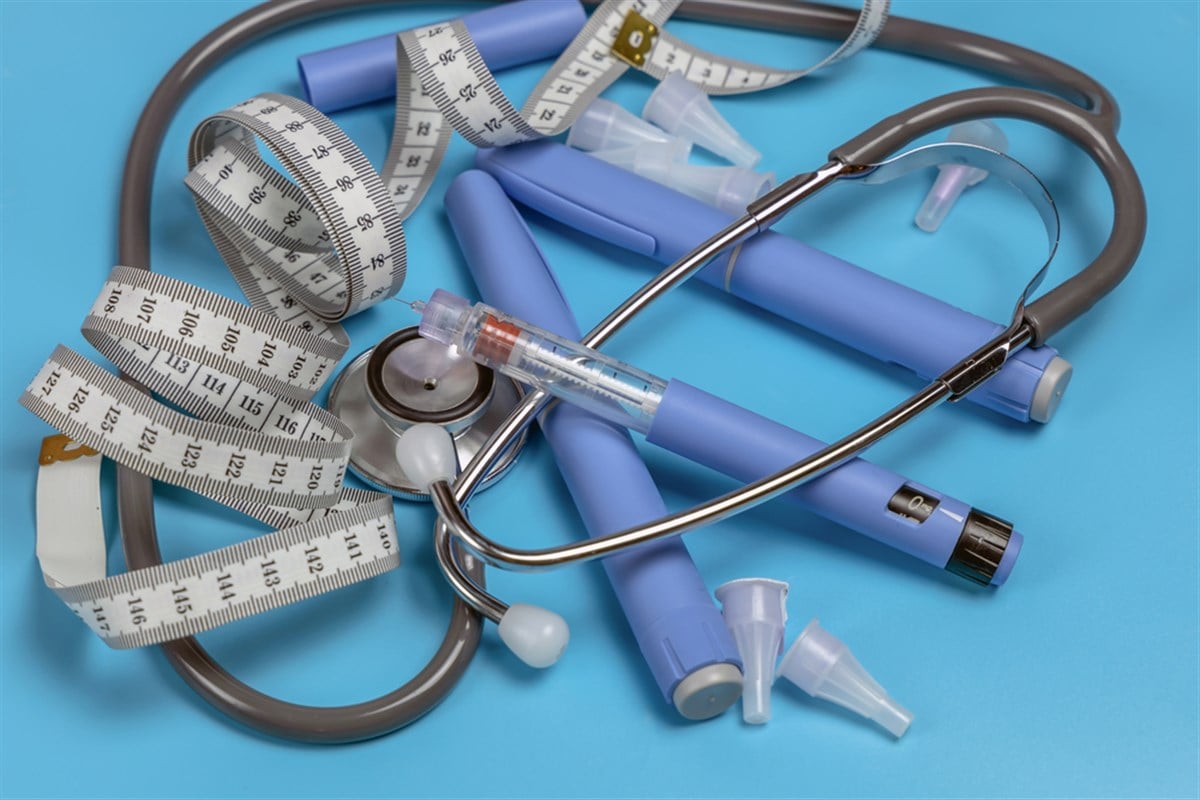
Global pharmaceutical company Eli Lilly & Co. (NYSE: LLY) has been in a GLP-1 arms race with its FDA-approved therapies Mounjaro and Zepbound. It's been going heads-up against GLP-1 leader Novo Nordisk A/S (NYSE: NVO), best known for Ozempic and Wegovy.
By all accounts, Eli Lilly's Tirzepatide, the active ingredient in Mounjaro and Zepbound, is superior on paper to Semaglutide, the active ingredient in Ozempic and Wegovy, because it targets two hormones compared to one. However, currently in Phase 2 clinical trials, its secret weapon for weight loss targets three hormones as the ultimate triple threat.
Eli Lilly operates in the medical sector, facing competition from upcoming GLP-1 contenders from Viking Therapeutics Inc. (NASDAQ: VKTX), Altimmune Inc. (NASDAQ: ALT), and Structure Therapeutics Inc. (NASDAQ: GPCR).
Eli Lilly: Expanding the Indications Race for GLP-1 Treatment
GLP-1 drugs were developed to regulate glucose levels for Type 2 diabetes patients. Weight loss was a noticeable and serendipitous side effect that took the medical community by storm. In addition to weight loss, both Novo Nordisk and Eli Lilly have been trying to expand the indications for GLP-1 more medical conditions, including sleep apnea, non-alcoholic steatohepatitis (NASH), metabolic dysfunction-associated steatohepatitis (MASH), cardiopulmonary disease, stroke, kidney disease, hypertension, Parkinson’s Disease, and Alzheimer’s Disease. These are all complementary indications that tend to stem from obesity. Expanding the labels leads to a larger user base and more revenues.
If Targeting 2 Hormones is Good, Then 3 Hormones Must Be Great
Semaglutide mimics the GLP-1 hormone, which is released after eating a meal and provides the feeling of being full. Tirzepatide is another GLP-1 agonist but also mimics glucose-dependent insulinotropic polypeptide (GIP), which releases more insulin in the bloodstream and effectively lowers blood sugar levels.
Eli Lilly has gone a step further with Retatrutide by targeting a third hormone glucagon (GCG) receptors, similar to Altimmune’s Pemvidutide. Glucagon receptors increase energy expenditures with direct effects on hepatic fat metabolism, which reduces serum lipids and liver fats.
Eli Lilly's Retatrutide Resulted in the Most Weight Loss of Any GLP-1 Drug Yet
Lilly published its Phase 2 clinical trial results for Retatrutide on June 26, 2024. Participants reached a mean weight reduction of up to 24.2% at 48 weeks. For reference, Ozempic showed an average weight loss of 15% after 48 weeks. Altimmune's GLP-1/glucagon agonist Pemvidutide showed an average 15.6% mean weight loss after 48 weeks. Zepbound at 15 mg (max dosage) showed an average weight loss of up to 20.9% after 72 weeks. Phase 3 clinical trials for Retatrutide are expected to run until late 2025. If the result can be duplicated in a larger sample, it could be the biggest blockbuster drug ever.
Tirzepatide Drives Lilly’s Revenues and Raised Guidance for 2024
Eli Lilly's Tirzepatide medications Mounjaro and Zepbound have caused its revenues to surge 26% in Q1 2024 to $8.77 billion. Lilly raised its full-year 2024 revenue outlook from $42.4 billion to $43.6 billion. In Q4 2023, Mounjaro was Lilly's top-selling drug, generating $2.2 billion in revenues, up from just $279 million in Q4 2022. Mounjaro sales were $5.16 billion for the full year 2023. In Q1 2024, Mounjaro sales more than tripled YoY to $1.8 billion.
Keep in mind that Mounjaro is a Type 2 diabetes medication often used off-label for obesity. Its official obesity drug, Zepbound, went on sale in December 2023 and went into shortage by April 2024. Zepbound hit 77,590 new prescriptions in the United States for the week ending March 8, 2024, beating rival Wegovy.
Eli Lilly’s Alzheimer’s Disease Drug Could Generate $2 billion to $5 Billion Annually
While Mounjaro and Zepbound seem to be all that's talked about with Eli Lilly, it made headlines on its recent FDA approval for Kisunla (Donanemab). The Alzheimer's drug is designed to lower amyloid plaque levels in the brain, which is widely believed to be a major contributor to the development and progression of Alzheimer's. BMO believes it could generate peak annual sales between $2 billion to $5 billion upon a slow ramp-up.
Eli Lilly & Co. analyst ratings and price targets are at MarketBeat.




